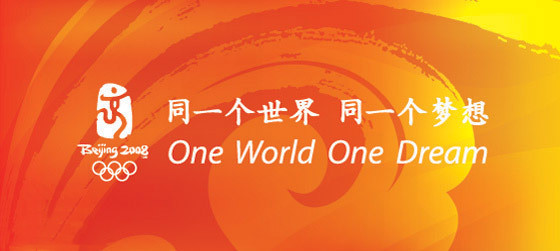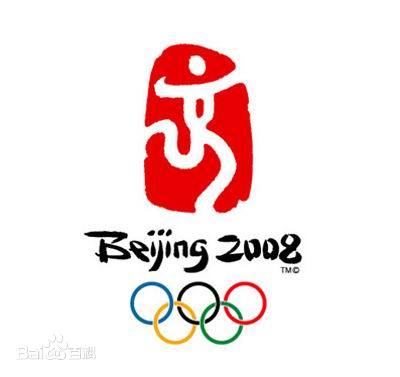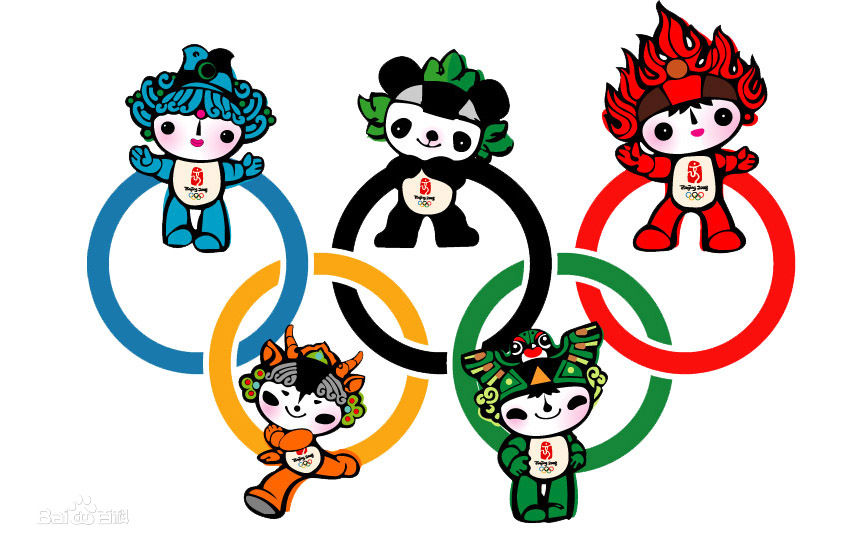
Beijing 2008 Olympic Games
The 29th Summer Olympics, also known as the 2008 Beijing Olympics, was held on August 8, 2008 at 8: 00 p.m. sharp in Beijing, capital of the People’s Republic of China. The host city of the 2008 Beijing Olympic Games was Beijing, with Shanghai, Tianjin, Shenyang, Qinhuangdao and Qingdao as co-host cities. Hong Kong undertook Equestrian events. There were 204 countries and regions participating in the 2008 Beijing Olympics, with 11,438 athletes participating in 28 sports and 302 events, with more than 60,000 athletes, coaches and officials participating. The 2008 Beijing Olympics set 43 new world records and 132 new Olympic records. 87 countries and regions won medals in the games. China topped the gold medal table with 51 gold medals, and was the first Asian country in Olympic history to reach the top of gold medal table. In addition, Beijing Winter Olympic is scheduled to take place from 4 to 20 February 2022.
Bidding of Beijing 2008 Olympic Games
In 1993, Beijing applied to host the 27th Olympic Games in 2000, but was defeated by 2 votes in the final round of voting by Sydney. In 1998, Beijing proposed to bid for the 29th Olympic Games in 2008. On November 25, 1998, Beijing submitted an application for hosting the 2008 Olympics. On April 7, 1999, the International Olympic Committee officially accepted Beijing’s bid.
From February 19 to February 24, 2001, 17 members of the IOC evaluation team led by Dutch Hein Verbruggen and Swiss Gilbert Ferri inspected Beijing’s bid. The evaluation team assessed that Beijing’s bid for the Olympics has received strong support from the Chinese government and the people of Beijing. On July 13, 2001, at the 112th plenary session of the International Olympic Committee held in Moscow, the International Olympic Committee voted for Beijing to host the 2008 Olympic Games. Later, IOC President Samaranch announced in Moscow that Beijing would become the host city of the 2008 Olympics. On the evening of the same day, news of Beijing’s successful bid for the Olympics came that 400,000 people in Beijing flocked to Tiananmen Square for a carnival.
Opening Ceremony of Beijing 2008 Olympic Games
The 2008 Beijing Olympics officially opened at 8:00 pm on August 8, 2008. The opening ceremony was attended by more than 91,000 spectators and many heads of state and political figures. The ceremony was directed by Zhang Yimou. The performance started with 2008 staff beating Fou(缶) that can shine. Each time it was beaten, it emited a light, these lights constituted the number of Chinese and Arabic, counting down the seconds of the opening of Beijing Olympics. Later, from Yongdingmen to the main venue, fireworks in the shape of 29 footprints were set off along the central axis of Beijing, symbolizing “the 29th Olympic games step by step into Beijing”. The opening ceremony was officially launched.
The opening ceremony’s artistic performance, entitled “Beautiful Olympics”, was divided into two parts. The first part showed China’s four major inventions, writing and other Chinese history. The second part showed China’s prosperity since the reform and opening up. Later, Chinese singer Liu Huan and famous British singer Sarah Brightman sang the Olympic theme song “You and Me”. After that, players from all countries entered the arena in the stroke order of simplified Chinese names. Traditionally, Greece came into play first, Guinea came into play second, then players from other countries came into play one after another, and finally the host China came into play with basketball player Yao Ming as the flag bearer.
The main torch of the Olympics was lit by Li Ning, the “Prince of gymnastics”, hanging high in the air with a steel wire. After a circle walk in the air, the main torch in the shape of “auspicious clouds” was lit, symbolizing the official start of the 16-day Beijing Olympics.
Closing Ceremony of Beijing 2008 Olympic Games
The closing ceremony of the 2008 Beijing Olympics was held at the Beijing national stadium from 8:00 p.m. to 10:00 p.m. on August 24, 2008. Hu Jintao, President of the People’s Republic of China, and Jacques Rogge, President of the International Olympic Committee, were greeted by the music of the PLA Welcome Band, then raising the national flag of the People’s Republic of China and playing the national anthem of the People’s Republic of China. Before long, a theatrical performance called “Gathering” began. In the ceremony of extinguishing the olympic torch, three foreign actors imitated the athletes who were reluctant to part from Beijing. Before boarding the plane, one of the actors opened his scroll to read, which coordinated with the opening ceremony. After that, the actor slowly closed the scroll and the torch slowly extinguished, which indicated that athletes and spectators from all over the world felt reluctant to part with the end of the Beijing Olympics.
Culture of Beijing 2008 Olympic Games
Slogan

The slogan of the 29th Beijing Olympic Games in 2008 is “One World, One Dream”. On June 26, 2005, the slogan of the 29th Beijing Olympic games in 2008 was officially released in the Beijing workers’ stadium. The slogan of “one world, one dream” embodies the essence of the Olympic spirit and universal values- unity, friendship, progress, harmony, participation and dreams. It expresses the common desire of the world to pursue a better future for mankind under the inspiration of the Olympic spirit.
Emblem

The emblem of the 29th Beijing Olympic Games in 2008 is “Chinese Seal. Dancing Beijing”, designed by Zhang Wu, Guo Chunning and Mao Cheng. On August 3, 2003, the Beijing Organizing Committee for the Games of the XXIX Olympiad officially released the emblem at Hall of Prayer for Good Harvests in the Temple of Heaven, Beijing. Jackie Chan and Deng Yaping jointly presented the emblem. It consists of three parts:
- The design of the seal character “京” is similar to that of a sprinting athlete, and like a dancer. It represented Beijing, the host city of the Olympic games, and at the same time was very rich in the verve of Chinese Orient.
- The Chinese pinyin “Beijing” and “2008” symbolized the 2008 Beijing Olympics.
- The five Olympic rings are the symbol of the Olympic spirit.
Mascot

Fuwa is the mascot of the 29th Olympic Games in Beijing in 2008. On November 11, 2005, just 1,000 days before the opening of the Beijing Olympic games, Fuwa was officially released. The five fuwa were “Beibei”, “Jingjing”, “Huanhuan”, “Yingying” and “Nini”. Linking the names of the five fuwa together, they would read Beijing’s warm invitation to the world, “Beijing welcomes you.” Fuwa conveyed to children all over the world the spirit of friendship, peace, positive enterprising spirit and the good wish of harmony between man and nature. Fuwa also represented China’s Olympic dream and the aspiration of the Chinese people. Their prototype and headdress contained their connection with the sea, forest, fire, earth and sky. Their image design applied the expression of traditional Chinese art and showed the splendid culture of China.
Medal
The medals of the 2008 Beijing Olympics were gold inlaid with jade, silver inlaid with jade, and copper inlaid with jade. The front of the medal is the uniform design of the IOC-the Greek goddess of victory with wings and the Greek arena of panathinaikos. The back of the medal is inlaid with jade from ancient Chinese dragon pattern, and the metal figure in the middle of the back is engraved with the Beijing Olympics emblem. The medal has strong Chinese characteristics, which not only reflects the praise for the winner, but also vividly illustrates the Chinese nation’s value of comparing “Jade” with “morality” since ancient times. It is the “combination of Chinese civilization and Olympic spirit” in Beijing Olympic Games.
Competition Item of Beijing 2008 Olympic Games
The competition items for the Beijing Olympic Games were quite similar to that of the 2004 Summer Olympics held in Athens. There were 28 sports and 302 events at the 2008 Olympic Games. 9 new events were held, including two from the new cycling discipline of BMX. Women competed in the 3000 metre steeplechase for the first time. Open water swimming events for men and women, over the distance of 10 kilometres, were added to the swimming discipline. Team events (men and women) in table tennis replaced the doubles events. In fencing, women’s team foil and women’s team sabre replaced men’s team foil and women’s team épée. Two sports were open only to men, baseball and boxing, while one sport and one discipline were open only to women, softball and synchronized swimming. Equestrian and mixed badminton are the only sports in which men and women compete together, although three events in the Sailing allowed the opportunity for both males and female participants. However, only male participants took part in all three events. (Martial arts was set as a special event in this Olympics.)
28 Major Sports of 2008 Beijing Olympic Games
| Track and Field | Canoe | Badminton | Softball |
| Basketball | Soccer | Boxing | Canoeing |
| Cycling | Fencing | Gymnastics | Weightlifting |
| Handball | Hockey/Field Hockey | Judo | Wrestling |
| Aquatics) | Modern Pentathlon | Baseball | Equestrian |
| Kickboxing | Tennis | Table Tennis | Shooting |
| Archery | Triathlon | Sailing | Volleyball |
Competition Venues of Beijing 2008 Olympic Games
Main Venues
- Bird’s Nest/National Stadium: It was the main venue of the 2008 Beijing Olympic games, also called “bird’s nest” due to its unique shape. During the Olympics, the stadium had 100,000 seats, and hosted the opening and closing ceremonies of the Olympics, as well as athletics and soccer events.
- The Water Cube/National Swimming Center: Located in the Beijing Olympic Park, one of the landmark buildings of the 2008 Beijing Olympic Games. It mainly undertook swimming competitions in 2008.
- National Stadium(Folding Fan): It was one of the three main stadiums for the Beijing Olympics. During the Olympics, the National Stadium mainly undertook competitive gymnastics, trampoline and handball events.
- Beijing Shooting Range Hall: Located on the west 5th ring road of Beijing, it has a qualifying venue, a finals venue, a permanent ammunition depot and outdoor supporting facilities, and was one of the newly built major competition venues for the Beijing Olympics. It mainly undertook Shooting events.
- Wukesong Gymnasium: It can accommodate 18,000 spectators and was the competition venue for the 2008 Beijing Olympic games basketball event.
- Laoshan Velodrome: It mainly undertook indoor cycling events.
- Beijing Olympic Water Park: Olympic Water Park is located Shunyi District, Beijing, and it is the venue for all rowing events of the 29th Olympic Games in 2008.
- China Agricultural University Gymnasium: Located in the east campus of China Agricultural University, No.17 Tsinghua East Road, Haidian District, Beijing, it mainly undertook wrestling events in 2008 Beijing Olympics..
- Peking University Gymnasium: Located in the southeast area of Peking University and adjacent to Zhongguancun Street, it mainly undertook table tennis events in 2008 Beijing Olympics.
- Beijing Science University of Science and Technology Gymnasium: It is located on the campus of Beijing University of Science and Technology at No.30 Xueyuan Road, Haidian District, mainly undertook Judo and Taekwondo events.
- Beijing Industrial University Gymnasium: Located in the southeast district of Chaoyang district, Beijing, it mainly undertakes badminton and rhythmic gymnastics.
Expanded Venues
- Olympic Sports Centre Stadium: Located in the south of the National Olympic Sports Center, it mainly undertook modern pentathlon events in 2008 Beijing Olympics.
- Olympic Sports Center Gymnasium: Located in the National Olympic Sports Center, it was mainly responsible for handball preliminaries and quarterfinals in 2008.
- Workers’ Stadium: Located in North Road of Workers’ Stadium, Chaoyang District, Beijing, it mainly undertakes football matches.
- Worker’s Gymnasium: Located in North Road of Sanlitun Workers’ Stadium, Chaoyang District, it mainly undertakes boxing matches.
- Capital Gymnasium: Located at Baishiqiao Road, Haidian District, Beijing, it mainly undertakes volleyball competitions.
- Fengtai Softball Palaestra: Located in the southwest of Beijing city, it mainly undertakes softball events.
- Ying Tung Natatorium: Located in the National Olympic Sports Center in the Olympic Village of Chaoyang District, it mainly undertakes water polo and modern pentathlon(swimming).
- Beijing Shooting Range CTF: Mainly undertook men’s and women’s flying saucer competitions.
- Beijing Institute of Technology Gymnasium: Located in the Beijing University of Technology, it mainly undertakes volleyball events.
- Beijing University of Aeronautics and Astronautics Gymnasium: Located in Beijing University of Aeronautics and Astronautics, it mainly undertakes weightlifting events.
Temporary Venues
- Fencing Hall of National Convention Center: Located on the north side of the National Stadium, it mainly undertakes fencing events.
- Olympic Forest Park Hockey Rink: Located in the Olympic Forest Park, it mainly undertakes hockey events.
- Olympic Forest Park Archery Range: Located in the Olympic Forest Park, with a construction area of 8609 square meters, it was mainly engaged in archery events.
- Olympic Forest Park Tennis Court: Located in the Olympic Forest Park, it mainly undertakes tennis events.
- Wukesong Baseball Field: Located in Wukesong Culture and Sports Center, it mainly undertakes baseball events.
- Road Cycling Course: The starting point is at Yongdingmen and the ending point is Juyongguan, with a total length of 103.9 kilometers. The venue for the road cycling race.
- Chaoyang Park Beach Volleyball Ground: Located in Beijing Chaoyang Park, it mainly undertakes beach volleyball events.
Venues Out of Beijing
- Qingdao International Sailing Center: Located in the east of Qingdao, it mainly undertakes sailing events.
- Hong Kong Equestrian Venues: Located at No.25 Yuanhe Road, Shatin, New Territories, Hong Kong, It is a 100-meter x 80-meter all-weather sand venue, mainly engaged in equestrian events.
- Shanghai Stadium: Located at No. 666 Tianyaoqiao Road, Xuhui District, Shanghai, it mainly undertakes football matches.
- Tianjin Olympic Stadium: Located in the southwest of Tianjin, it mainly undertakes football qualifying matches.
- Shenyang Olympic Sports Center Stadium: Located in Shenyang City, Liaoning Province, it mainly undertakes football events.
- Qinhuangdao Olympic Sports Center: Located in Qinhuangdao City, Hebei Province, it mainly undertakes football events.
Participating Countries and Regions
On the evening of August 8, 2007, IOC President Jacques Rogge sent invitations to 198 national Olympic committees (including 205 countries and regions) in Beijing’s Tiananmen Square, including Marshall Islands, Tuvalu and Montenegro, which became new IOC members after the Athens Olympics. It is worth mentioning that the invitation ceremonies for all previous Olympics were held in Lausanne, Switzerland, but for the first time in the capital of the host country. The International Olympic Committee announced before the opening of the Olympics that Brunei’s team was disqualified because it failed to register its athletes before the Olympics, leaving 204 countries and regions to compete.
Infulence of Beijing 2008 Olympic Games
The 2008 Beijing Olympics has enhanced China’s international reputation, strengthened national identity, enhanced social cohesion, enhanced social integration capability, improved social morality, enhanced the government’s administrative capacity and accelerated the social development process.
The 2008 Beijing Olympic Games promoted the city construction of Beijing and promoted Beijing’s social economy to move towards a more modern international metropolis. The Olympic Games will promote the healthy development of the real estate market and stimulate economic growth by adjusting and optimizing the structure of real estate investment and construction and increasing the supply of housing for the working class.
The 2008 Beijing Olympics has made significant progress in Beijing’s infrastructure construction. Beijing’s rail transportation has reached 200 kilometers, 26 fast connecting lines have been built between the new urban area and the city center, and between the city and its suburbs. A new inter-city railway from Beijing to Tianjin with two-way 8-lane and an speed of 300 kilometers per hour has been built and put into operation, making Beijing a modern transportation network of an international metropolis.
The 2008 Beijing Olympics have made China increasingly confident, and the mentality and demeanor of a big country have also been shaped and tempered. The 2008 Beijing Olympics have fulfilled China’s 100-year dream, making China more confident, more open and more progressive. After the 2008 Beijing Olympics, China is more committed to peaceful development, open development and cooperative development, and is committed to building a harmonious world of lasting peace and common prosperity together with people from all over the world.
Keep Reading
- The Opening Ceremony of 2022 Beijing Winter Olympic Games
- 3 Days Zhangjiakou Olympic Tour from Beijing
- 6 Days Beijing & Zhangjiakou Private Olympic Tour
- 6 Days Beijing and Zhangjiakou 2022 Beijing Winter Olympic Tour
- 7 Days Beijing and Zhangjiakou 2022 Beijing Winter Olympic Tour
- 9 Days 2022 Winter Olympics Tours with Beijing, Xian, Shanghai
- 9 Days 2022 Winter Olympics Tours with Zhangbei Bashang Grassland and Chengde Mountain Resort
The Opening Ceremony of 2022 Beijing Winter Olympic Games
The Opening Ceremony of 2022 Beijing Winter Olympic Games will be held on 4 February 2022. It will feat segments with culture of China, the parade of nations and...












